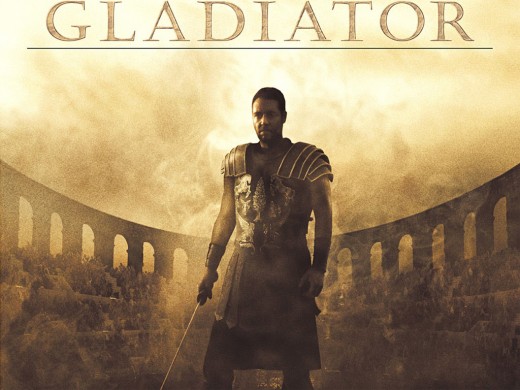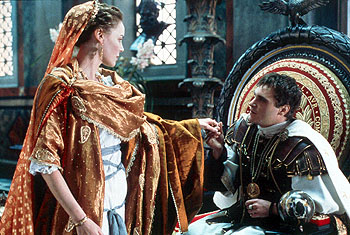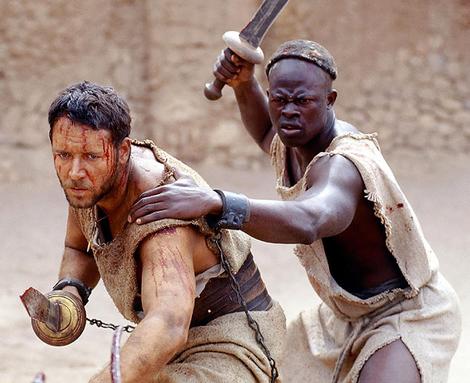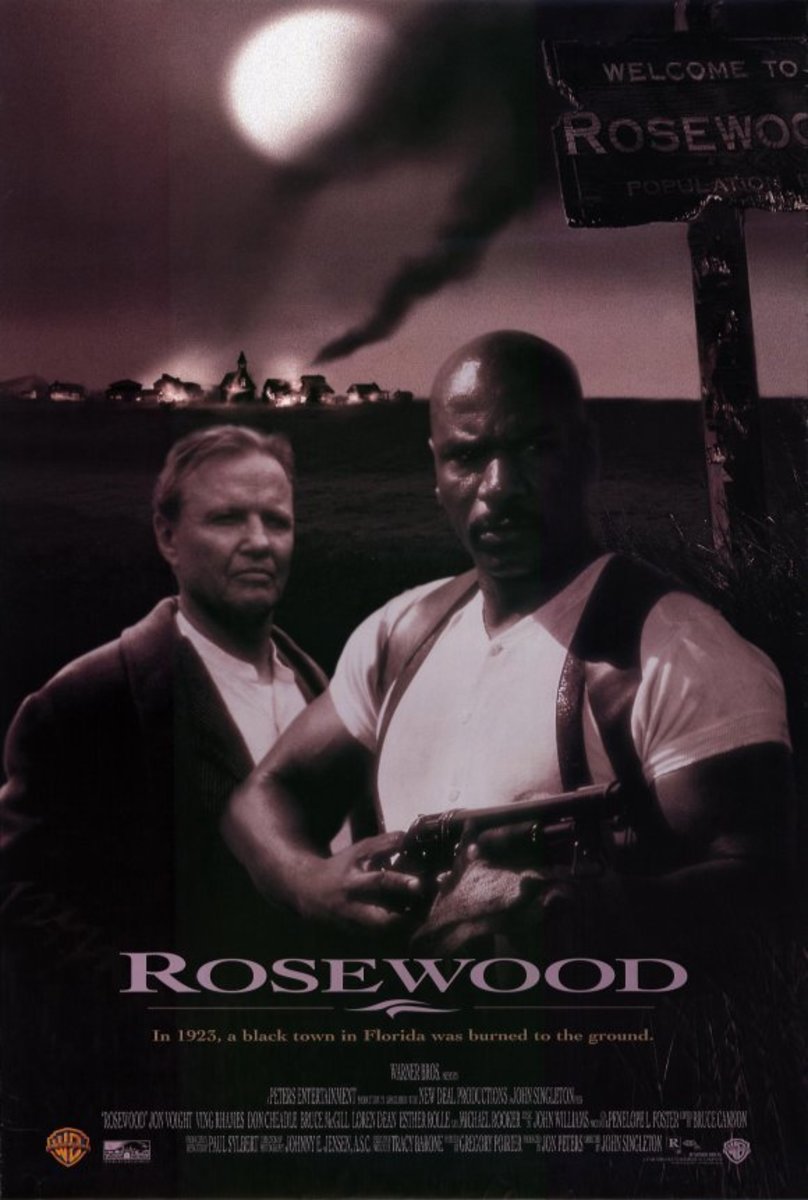Does Historical Accuracy Matter in Ridley Scott’s Gladiator?


In Scott’s Gladiator much of the film is inaccurate. In fact there is distinctly more fiction than fact. An important thing to think about is what you hope to gain by telling a historical story. Are the audience supposed to learn something from the film, or is it supposed to be a purely fictitious story. Obviously the biggest inaccuracy is that Maximus (Russell Crowe) never actually existed, but other than that the film covers a much smaller timescale than it should, the character Lucilla plays very different role to her historical one and the deaths of Marcus Aurelius and Commodus are not accurate. But the important thing to consider is whether it is necessary for them to be accurate or whether accuracy can be sacrificed for the sake of other things. For example, is it more important that a film appeal to its audience and be interesting to watch?
The first consideration should be what the point of the film is. If the film is supposed to be teaching the audience about ancient Rome, what it was like to be a gladiator and what the Empire was like then clearly accuracy is really important and should not have been disregarded in the way it has in this film. But presumably this is not the point of the film. Instead I think this film is supposed to be entirely fiction, based loosely on a certain time period. This gives them scope to change history and fictionalise to fit their storyline. If the film had been more modern, focusing on maybe the First or Second World War I think it would have been more important for it to be historically accurate. There are so many people who lived through these wars that are alive now that they would know what was inaccurate and would probably be offended by films that were just blatantly wrong. As it is, no-one can really know what was like to live in ancient Rome or exactly how much of the film is made up so from this point of view it probably doesn’t matter quite as much.

As the character of Maximus is entirely fictitious the main plot of the film becomes inaccurate, especially where he interacts with characters like Commodus and Marcus Aurelius, who we know did exist. His portrayal as a man devoted to serving his country and his family is likely to be a realistic reflection of the majority of soldiers. It does not matter that Maximus is not actually a historical character as it seems more the case that ancient Rome is just the backdrop. It is however, set at an important time in Rome’s history; at the beginning of the decline of the Empire. It is important that they show the struggle between the Senate (and call for a Republic) and the Emperor who wants to rule like a dictator.
Although it is just a story, I still think that writers should stick to history as much as possible. There are points where the film could have stuck closer to fact and not lost anything, for example, in the role of Lucilla. Ancient sources tell us that Lucilla was banished by Commodus for plotting against him, and there is no mention of a son. In the film, Commodus’ seemingly incestuous feelings towards his sister are clearly portrayed in that way to add to the grotesqueness of his character, making him more a typical villain. Although I see why it was done this way, he would have been just as evil a character if we had seen him banishing his sister and subsequently having her executed (the way history tells it).
There are several points in the film where I think accuracy matters and it has been done accurately. The portrayal of Gladiators, their life and the way they fight should be accurate because most of the audience will not actually know what Gladiatorial life was like, it’s not a theme seen often in films, so it is unnecessary and illogical to make it up. One small detail that is added to some of the fight scenes that make them look accurate is the Turned Thumb. Ridley Scott was inspired by a painting of this name by Jean-Leon Gerome painted in 1872, and Commodus uses it twice in the film to determine the fait of gladiators. It’s a small, but I think important, touch that makes the fight scenes seem more accurate.

On the whole I am inclined to think that historical accuracy does not matter for the most part in this film. People criticise the timescale being shortened significantly. Commodus’ reign is supposed to have been over 12 years, but in the film he is only Emperor for maximum of 2 years before he is killed by Maximus. But it is necessary to cut it down because to show all 12 years would have made the film too long and it would probably have included lots that an audience would have found uninteresting. There is also a problem that sources are often inaccurate or have gaps in, so some parts of the history must be left to the imagination of the writer. This is more likely to be the case with the less interesting bits of the story, which could be another reason why they are left out, whereas the major events are well documented.
The most important thing to consider when making a film is the audience. Films have to make a profit, obviously, so they need to appeal to their audience by having an exciting plot, a lot of drama, maybe some romance etc. These things are put first in a film before the need for historical accuracy. Villains have to be really bad and heroes really good. This explains why Commodus’ character is portrayed as much more perverse than he probably was in reality. He didn’t murder his father and he didn’t have incestuous feelings towards his sister (although he did have her executed, but only after she conspired against him). Obviously he really was a bad person but his bad qualities are exaggerated for the behalf of the audience. The same is true of Maximus, his good qualities are exaggerated to make him more of a stereotypical hero, for example, being seen as a son by Marcus Aurelius and his complete devotion to his family even after their death.

The deaths of Marcus Aurelius and Commodus are also inaccurate, made more dramatic for more exciting viewing. Marcus Aurelius was not suffocated by Commodus, he simply died of old age, but for the benefit of the audience it makes better viewing to see him suffocated by his own son. The same applies to the death of Commodus, who obviously wasn’t killed by Maximus, although he was assassinated. Films typically show the bad guy being killed by the hero because it is a satisfying end for the public and gives a positive message about life.
There is an interesting inaccuracy in the role of Juba. In Ancient Roman times it is unlikely that even a Gladiator would have had such an unproblematic relationship with a black man. This doesn’t seem to matter in contemporary films. It is more important to be politically correct than historically correct in American films nowadays, where it is seen as incredibly necessary to promote the idea of racial harmony virtually to the point of positive discrimination. Yet the character is criticised further still for being such a loyal friend to Maximus, as if he is acting almost as Maximus’ slave. Perhaps it would have been better if the film had been accurate and had not included Juba at all, or given him a smaller part.
In conclusion, I don’t think that historical accuracy matters much in Gladiator, except for a few points. I think it’s important for Roman life to be portrayed accurately as well as the way gladiators fight and live, because there is no reason why this should be shown incorrectly, and they have researchers that work with the writers who can tell them all this information. As the film is based on a fictional character, the accuracy is not going to be overly important, because any interaction with historical characters is going to be inaccurate. From this point of view, accuracy does not matter because it’s all about telling the story, rather than getting the historical facts right. It is more important for the film to appeal to the audience and thus make money. Consequently the timescale is reduced to show only the exciting events and the positive and negative qualities of the hero and villain are exaggerated to make it more dramatic to watch rather than accurate.








